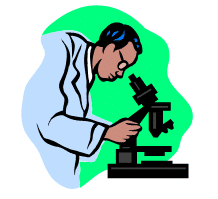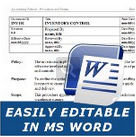Laboratory Technician Job Description Template Word
Are you looking for a comprehensive and customizable job description template for a laboratory technician? Look no further than our Laboratory Technician Job Description Template Word product.
Our template is designed to help you create a job description that accurately reflects the duties and responsibilities of a laboratory technician. It includes sections for job summary, essential duties and responsibilities, qualifications, physical demands, and work environment.
With our template, you can easily tailor the job description to your specific needs. You can add or remove duties and responsibilities, adjust the qualifications and requirements, and customize the physical demands and work environment sections to match your laboratory’s unique needs.
Our template is also designed to be easy to use. It comes in a Microsoft Word format, so you can easily edit and customize it to your needs. And because it’s a template, you don’t have to start from scratch – simply fill in the blanks and customize as needed.
Overall, our Laboratory Technician Job Description Template Word product is an essential tool for any laboratory looking to hire a new technician. It’s comprehensive, customizable, and easy to use, making it the perfect solution for creating a job description that accurately reflects the needs of your laboratory.
 LABORATORY TECHNICIAN SUMMARY OF FUNCTIONS
LABORATORY TECHNICIAN SUMMARY OF FUNCTIONS
The Laboratory Technician assists chemists and chemical engineers in the design, development, testing, and manufacture of the organization’s products.
LABORATORY TECHNICIAN ESSENTIAL DUTIES AND RESPONSIBILITIES
- Helps create new chemical products and finds new ways to make chemicals from different starting materials. Sets up and conducts tests on chemical processes and products that are being developed or improved.
- Helps with experiments by taking measurements, making computations, and tabulating and analyzing the results. Uses computers to create reports portraying results of tests.
- Keeps a detailed laboratory log, dating, and recording all tests and results.
- Performs weekly safety-checks of fire-extinguishing equipment, eyewash stations, and shower stations. Attends safety meetings as required.
- Creates and sends out product samples as needed.
- Sets up ongoing quality-control testing of various samples and records test results for analysis by chemists and/or chemical engineers.
ORGANIZATIONAL RELATIONSHIPS
Reports to the Engineering Manager. Works with chemists, chemical engineers, and other laboratory technicians.
LABORATORY TECHNICIAN QUALIFICATIONS
A high school diploma plus two years of related college training is required. Both mental and manual skills are utilized, and patience and attention to detail are necessary.
LABORATORY TECHNICIAN PHYSICAL DEMANDS
Ability to communicate orally with management and other co-workers is crucial. Regular use of the telephone and e-mail for communication may be required. Sitting or standing for extended periods are common. Hearing and vision within normal ranges is essential for normal conversations, to receive ordinary information and to prepare or inspect documents.
Heavy lifting is not expected. Exertion of up to 20 lbs. of force occasionally may be required. Good manual dexterity for the use of common office and laboratory equipment.
Good reasoning ability is required to solve a wide range of scientific problems. Able to apply statistical calculations, analysis of variance, correlation techniques, and sampling theory as well as algebra, linear equations, and other analytics as required. Able to understand and utilize technical reports to conduct business.
WORK ENVIRONMENT
The job is performed indoors in a traditional laboratory setting. Exposure to chemicals and laboratory agents is expected. Protective safety clothing, goggles, gloves, facemasks, or hat are required as needed. Activities include extended periods of sitting or standing and extensive work mixing chemicals, conducting experiments, and using laboratory equipment.






















Reviews
There are no reviews yet.